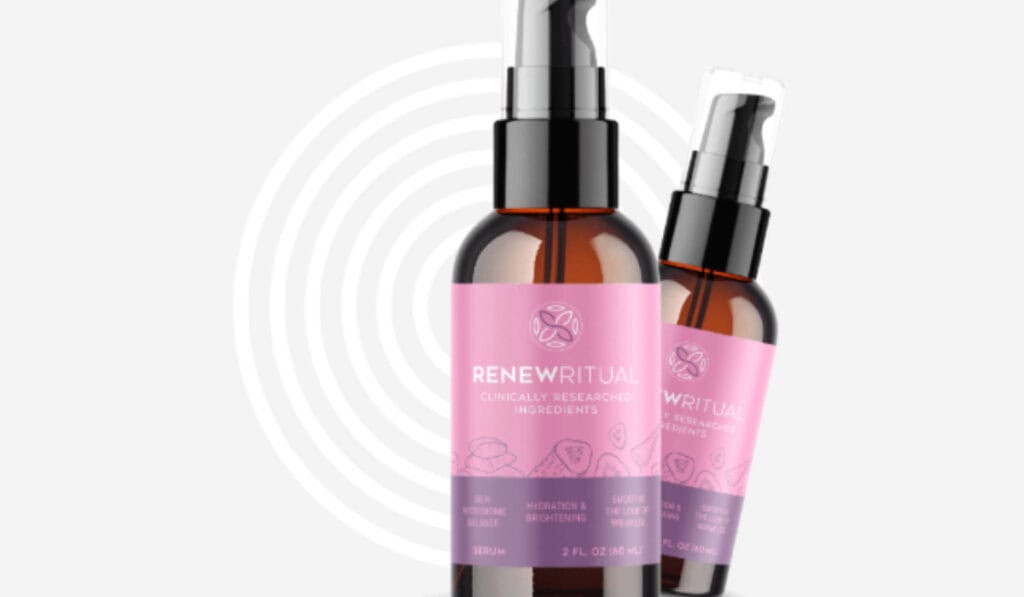Function and Importance – The Secrets to Youthful Skin
Collagen is essential for maintaining the strength, elasticity, and overall health of the skin. As the most abundant protein in our bodies, it supports the skin layers, helping to form a dense network of fibers that provide structure and support. The arrangement of collagen in the skin ensures its tensile strength, allowing our skin to stretch and bounce back. However, as the skin ages, collagen degradation occurs, leading to wrinkles and a loss of firmness. This aging process is accelerated by factors like sun exposure, pollution, and certain lifestyle habits, emphasizing the role of collagen in keeping our skin looking youthful.
Beyond its aesthetic benefits, collagen plays a crucial role in wound healing and maintaining the health of connective tissues. This includes the support of blood vessels, sweat glands, and other vital components of skin health. To combat the loss of collagen, incorporating collagen-rich foods like bone broth, leafy greens, and avoiding smoking can make a significant difference. Oral collagen supplements also offer a promising avenue for enhancing skin collagen levels, potentially aiding in the maintenance of skin hydration and elasticity alongside traditional methods like hyaluronic acid treatments.
Understanding Collagen and Its Vital Role in Skin Health
Within our skin, collagen functions as the scaffolding that holds everything together. Its role is pivotal in ensuring the skin’s health and vitality. The protein content in collagen provides the necessary strength and resilience our skin needs to withstand stretching and abrasion. As we age, our bodies produce less collagen, leading to thinner, more fragile skin. This makes understanding the forms of collagen and how they interact within our skin essential. Through a diet rich in collagen-supporting nutrients and avoiding harmful habits like smoking, we can help maintain the collagen levels that are vital for healthy, vibrant skin.
The Essence of Collagen: What It Is and Why It Matters
Collagen is much more than just a buzzword in beauty; it’s a structural protein found in our bones and connective tissues, playing a critical role in maintaining our overall health and well-being. Its importance can’t be overstated, as it contributes to the strength and elasticity of our skin, making it fundamental to our appearance and the healing process of wounds. A well-balanced diet helps to ensure our bodies have the necessary nutrients to produce collagen, highlighting the direct connection between what we eat and how our skin looks and feels.
The Aging Process: How Collagen Diminishes Over Time
As we age, our body’s collagen production naturally declines. This reduction in collagen is a major contributor to the aging process, manifesting as wrinkles, sagging skin, and a loss of elasticity. Factors such as sun damage further exacerbate collagen degradation, making protective measures like wearing sunscreen an essential part of preserving skin health. Maintaining a well-balanced diet rich in antioxidants can also help slow the loss of collagen, ensuring our skin remains as youthful and vibrant as possible for as long as possible.
Lifestyle Habits That Accelerate Collagen Breakdown
Several lifestyle habits can accelerate the breakdown of collagen, leading to premature aging of the skin. Not wearing sunscreen exposes the skin to harmful UV rays, which can degrade collagen at a faster rate. This emphasizes the importance of daily sunscreen application as a preventive measure to protect the skin’s collagen integrity and overall health. By understanding these habits and making conscious choices, we can significantly impact our skin’s aging process and maintain a more youthful appearance.
Nourishing Your Skin from Within: Foods and Supplements for Collagen Production
Incorporating bone broth, bell peppers, and a variety of fruits and vegetables into our diet can provide our bodies with the nutrients needed to support collagen production, offering a natural way to enhance skin health from the inside out.
Foods to Boost Collagen Production: More Than Just a Trend
Eating bone broth and bell peppers is not just a passing trend but a scientifically-backed strategy to boost collagen production for healthier, more resilient skin.
The Power of Bone Broth: A Traditional yet Effective Source
Bone broth is a rich source of collagen, making it an invaluable part of a diet aimed at enhancing skin health. Its protein content supports the body’s natural collagen synthesis, offering a traditional yet highly effective means of nourishing the skin from within.
Deciphering Collagen Supplements: Do They Really Work?
With the rise of oral collagen supplements, many wonder if they truly deliver on their promises of improved skin health.
What Does the Research Say on Collagen Supplements?
Randomized controlled trials provide evidence that oral collagen supplements can positively affect skin elasticity and hydration, supporting their use as part of a comprehensive skincare regimen.
The Impact of Diet on Skin Collagen Levels
A diet rich in vitamins, minerals, and protein, particularly from sources that support the health of tendons and ligaments, can significantly impact skin collagen levels, underscoring the importance of nutrition in skincare.
Can You Actually Eat Your Way to Better Skin?
Indeed, by choosing foods that support collagen production, such as bone broth, bell peppers, and other collagen-rich foods, we can effectively eat our way to better skin. This dietary approach provides the vitamins and minerals essential for maintaining skin health and enhancing its appearance.
Essential Food Containing Collagen for Youthful Skin
Bone broth stands out as a powerful source of collagen, a protein crucial for skin health. Alongside a balanced intake of vitamins and minerals, it can significantly contribute to a more youthful and vibrant skin appearance.
Collagen’s Multifaceted Role Beyond Skin Deep
Collagen’s influence extends beyond just skin health; its protein content plays a vital role in a wide range of bodily functions, including the support of bone broth, which contributes to overall wellness and vitality.
Beyond Beauty: Collagen in Medicine and Cosmetics
Collagen’s application spans beyond cosmetic beauty, playing an essential role in medical treatments and innovations, reflecting its foundational significance in health and wellness.
The Structural Foundation: How Collagen Supports More Than Just Skin
When we talk about collagen, most of us think about its benefits for the skin, like reducing wrinkles and keeping our complexion smooth. But collagen’s role goes much deeper, quite literally. It’s the glue that holds our bodies together, providing structure and strength to not only our skin but also to our bones and connective tissues. This protein is a building block, making up a significant part of our muscles, tendons, and ligaments. So, when we nurture our collagen levels, we’re supporting our whole body’s framework, not just enhancing our outer beauty.
Strategies to Prevent Collagen Loss and Promote Skin Health
Maintaining healthy collagen levels is key for youthful skin and a robust body structure. As we age, our bodies produce less collagen, leading to wrinkles and weaker joints. But, we’re not powerless in this process. By adopting a balanced diet rich in vitamins and minerals, protecting our skin from excessive sun exposure, and staying hydrated, we can slow down collagen loss. Incorporating regular exercise also plays a crucial role in keeping our skin elastic and our bones strong. These strategies not only help preserve collagen but also promote overall skin health.
Lifestyle Adjustments to Protect and Enhance Skin Collagen
To protect your skin and boost collagen production, incorporating healthy fats into your diet is a game-changer. Foods rich in omega-3 fatty acids, like salmon and avocados, help maintain the skin’s elasticity and moisture barrier. Additionally, minimizing exposure to harmful UV rays by wearing sunscreen and avoiding smoking can significantly reduce collagen breakdown. These lifestyle adjustments, combined with adequate hydration to keep the skin hydrated, can make a substantial difference in preserving your skin’s youthfulness and resilience against the signs of aging.
Innovative Approaches to Slowing Down the Signs of Aging
Science has brought us a variety of innovative methods to combat the signs of aging, particularly by focusing on ways to preserve and boost collagen levels. From topical treatments that stimulate collagen production to advanced laser therapies, these approaches aim to improve skin texture and firmness. Moreover, aesthetic procedures like microneedling and ultrasound therapy have shown promising results in enhancing collagen synthesis, offering a non-invasive solution to achieve younger-looking skin. Embracing these cutting-edge treatments can provide significant benefits in our quest to maintain a youthful appearance.
Collagen Through the Ages: Understanding Its Evolution in Our Bodies
As we journey through life, the abundance of collagen in our bodies naturally begins to wane. Collagen is the most abundant protein in our bodies, playing a critical role in maintaining skin firmness and joint health. Interestingly, bone broth, a traditional remedy revered for its health benefits, is rich in collagen and helps support our body’s natural production. Understanding how our body’s collagen changes through the decades empowers us to take proactive steps in preserving its levels, ensuring our skin remains supple and our bones and connective tissues stay strong.
The Lifecycle of Collagen: From Abundance to Decline
During our youth, our bodies are rich in collagen, giving our skin its plump, elastic quality and supporting our bones and connective tissues. However, as we age, the production of collagen begins to slow down, leading to visible signs of aging and a decrease in the structural integrity of our tendons and ligaments. This natural decline emphasizes the importance of nurturing our bodies with the right nutrients and care to maintain collagen levels, supporting our overall health and well-being as we grow older.
Identifying Signs of Decreasing Collagen Levels and Taking Action
Recognizing the signs of decreasing collagen levels can help us take timely action to mitigate their effects. Wrinkles, sagging skin, and joint pain are clear indicators that our body’s collagen is diminishing. By incorporating collagen-rich foods like bone broth into our diet and adopting a skincare routine that includes products designed to stimulate collagen production, we can fight back against these signs. Additionally, practicing a lifestyle that minimizes oxidative stress and protects the skin from environmental damages is crucial in maintaining collagen levels and ensuring our skin and joints remain healthy.
A Holistic View on Collagen’s Role in Skin Anatomy and Overall Wellness
Collagen’s importance extends far beyond just keeping our skin looking youthful; it’s a cornerstone of our overall wellness. A holistic approach, combining a diet rich in collagen-boosting foods like bone broth with strategies to minimize oxidative stress, not only helps protect the skin but also supports the health of our entire body. By understanding collagen’s comprehensive role, we can adopt lifestyle practices that enhance our well-being, ensuring that we not only look our best but also feel our strongest and healthiest.
Merging Diet, Supplements, and Lifestyle for Optimal Skin Health
Achieving optimal skin health involves a multifaceted approach that merges diet, supplements, and lifestyle adjustments. Ensuring that our diet includes plenty of hydration to keep the skin hydrated, alongside nutrients that support collagen production, lays the foundation for a radiant complexion. Combining this with collagen supplements and adopting skin-friendly lifestyle habits, such as getting enough sleep and managing stress, can significantly amplify the benefits, providing our skin with the tools it needs to remain vibrant and youthful.
The Future of Collagen Research and Its Potential Impacts on Skin Care
The future of collagen research holds promising prospects for skin care, with ongoing clinical trials exploring the efficacy of bioactive collagen peptides and their effects on skin moisture, strength, and elasticity. Innovations in understanding the collagen triple helix structure and its integration into the basement membrane through anchoring fibrils could revolutionize anti-aging treatments. Studies published in journals like J Dermatol and J Biol Chem are shedding light on how these advancements could lead to more effective interventions for conditions like joint pain and enhance the overall quality of skin care, making the dream of retaining youthful, resilient skin a closer reality.


